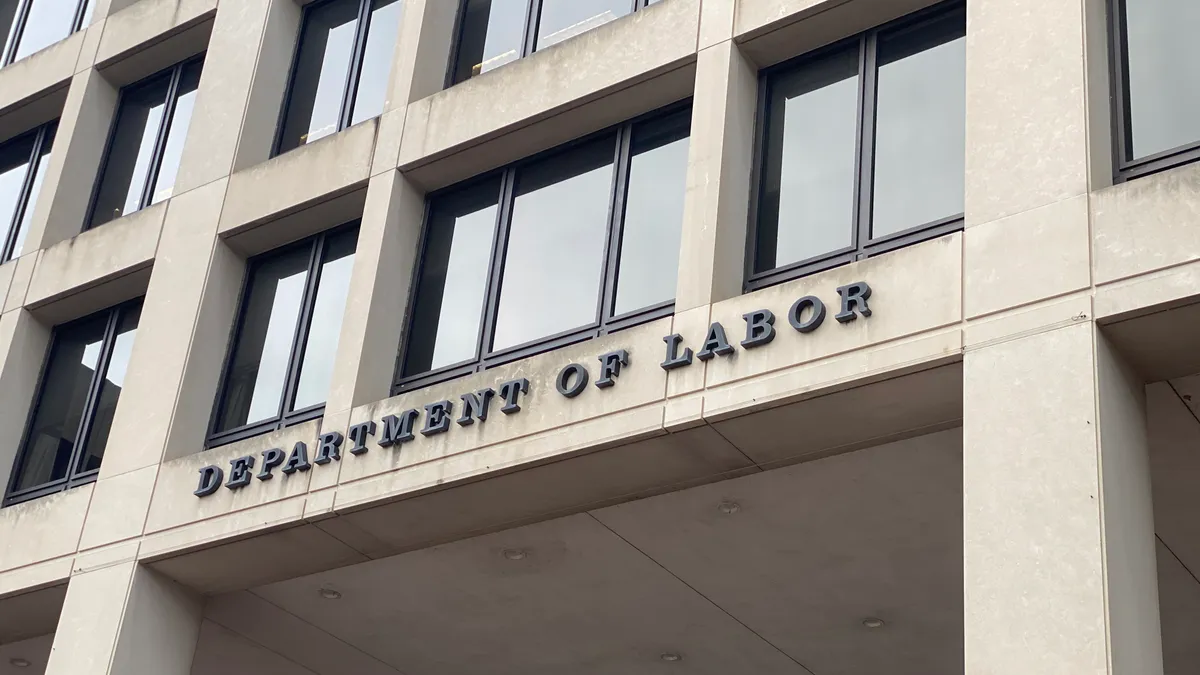TriMED HealthCare is the latest to go under the U.S. Department of Labor’s microscope in its crackdown on home healthcare providers. The DOL requires that the home care company pay 433 employees $1,930,761 in back wages.
Additionally, TriMED must pay an equal amount in liquidated damages, along with $180,141 in civil money penalties “for the willful nature of its violations,” DOL said. The employer lowered its regular wage rates when employees worked over 40 hours in a workweek to avoid paying out overtime, DOL alleged.
Ultimately, the total TriMED owes amounts to approximately $3.8 million in back wages and liquidated damages.
“It’s a sad day for small businesses in the United States — particularly the home care industry in Pennsylvania,” Beverly Jordan, owner of TriMED HealthCare, told HR Dive. From her perspective, the issue lies in state overtime requirements. The Office of Long Term Living, a division of the Pennsylvania Department of Human Services, “did not agree to pay overtime or reimbursement,” even though “it became mandatory [for employers] to pay overtime.”
“It was a situation of government bureaucracy gone amuck. The left hand is implementing policies that are in conflict with the right hand,” she said of the agencies involved. “Twenty-five hundred home care companies in Pennsylvania face a threat of going out of business, by reason of politics. We will be unable to service thousands of elderly people in their homes.”
Regarding the judgment announced Jan. 10, Jordan said, “TriMED cooperated with DOL at every level for a period of five years. DOL was ruthless and hell-bent on driving TriMED out of business, with little regard to the consumers we care for and less regard for the very employees they say they represent.” Whether her company could afford the judgment didn’t matter, Jordan emphasized.
“As a minority immigrant woman, I felt bullied, crushed, and put in a situation of David vs. Goliath. Then, with my back against the wall, I felt pressured to sign the consent form, as I had very little options open,” Jordan said.
The DOL has been productive in its Fair Labor Standards Act enforcement efforts over the past couple of years. Last July, the Labor Department claimed that Heavenly Hands Home Healthcare withheld back wages and falsified signatures showing proof of payment.
Per the DOL, the Virginia-based employer actively sought to dissuade its workers from speaking to the investigators — leading the government agency to seek an injunction and restraining order. A representative of Heavenly Hands told HR Dive that the DOL’s allegations regarding the investigation, which spanned from 2019 to 2021, were false.
The agency announced in August that another Pennsylvania-based care provider, Superior Health Inc., intentionally misclassified workers as independent contractors and misapplied an overtime rule — resulting in $293,990 in back wages withheld from 75 caregivers, Wage and Hour Division investigators found.
Per a November 2022 announcement, the WHD recovered more than $1 million in back wages from three Texas-based home health care companies, as well as one in Louisana. All four companies did not respond to HR Dive’s request for comment, or declined to comment.
These wage recoveries are catalyzed by the WHD’s initiative to both empower essential care workers — by educating them on FLSA compliance for domestic workers and the protocol for filing DOL complaints — and crack down on employers intentionally misclassifying employees.
The U.S. population aged 65 and older will reach 80.8 million people by 2040, per the U.S. Department of Health and Human Services’ Administration for Community Living. Likewise, healthcare jobs aiding the elderly community are projected to rise: the U.S. Bureau of Labor Statistics estimates about 2 million jobs will be added between 2021 and 2031. This expansion provides more opportunities for workplace legal counsel, people officers and HR leads to ensure companies are compliant with the FLSA.
Additionally, as the DOL highlighted in its caregiver initiative announcement, women of color disproportionately comprise the caregiving workforce and are “among the nation’s lowest paid workers,” all while being exposed to hazards such as COVID-19.
WHD Principal Deputy Administrator Jessica Looman acknowledged the importance of professional caregivers in the November 2021 press statement announcing the initiative, adding, “We look to them to care for us and our families and they deserve our appreciation, respect and protection.”
TriMED said its ethics and culture were based on compassion, integrity and accountability. “The DOL is hell-bent on bankrupting our company and in this event, nobody will win,” Jordan said. “Every homecare company in Pennsylvania is faced with this predicament. It’s only a matter of time [before all of them] will have to close.”





















